Donald Trump is elected U.S. president after criticizing a war abroad and calling for its end. He negotiates a deal with an adversary of the United States under heavy sanctions, cutting an ally out of their own country’s peace talks. The disastrous deal is viewed as a surrender to the opposition, prioritizing ending the conflict quickly over supporting U.S. allies or long-term stability in the region.
If that sounds familiar, that’s because it’s what happened in Afghanistan during Trump’s first term in office, and what Ukrainians and their partners fear may be happening to them now.
When Trump began promising on the campaign trail to end the war in Ukraine, U.K. parliamentary member Mark Martin saw “loads of similarities” to how Trump ended the war in Afghanistan.
“The deal wasn’t a deal, it was a capitulation,” said Martin, who served in Afghanistan and wrote An Intimate War, a book on the conflict. “And that’s what Trump’s trying to engineer here (in Ukraine).”
In February 2020, Trump’s team signed an agreement with the Taliban, ending two decades of U.S. involvement in the war in Afghanistan. The Afghan government at the time — a partner of the U.S. — was excluded from negotiations.
The subsequent withdrawal of U.S. troops, despite the Taliban’s failure to adhere to its side of the agreement, was a key factor in the shocking takeover of Kabul by the Taliban in 2021.
Though no comparison is exact, “what’s the same is the core instinct of the American leadership — to reach out to the enemy and just give away the family jewels,” said Martin.
Since taking office, Trump and his staff have alarmed Ukrainian officials with their negotiating stance towards Russia. Immediately, officials appeared to undermine Ukraine’s negotiating leverage by saying NATO membership was not an option and restoring Ukraine’s borders was “an unrealistic objective.”
An especially concerning development was a February meeting in Saudi Arabia between U.S. and Russian officials, to which Ukraine and Europe were not invited. Earlier this week, Trump said that it was “not important” for Zelensky to be present during the negotiations.
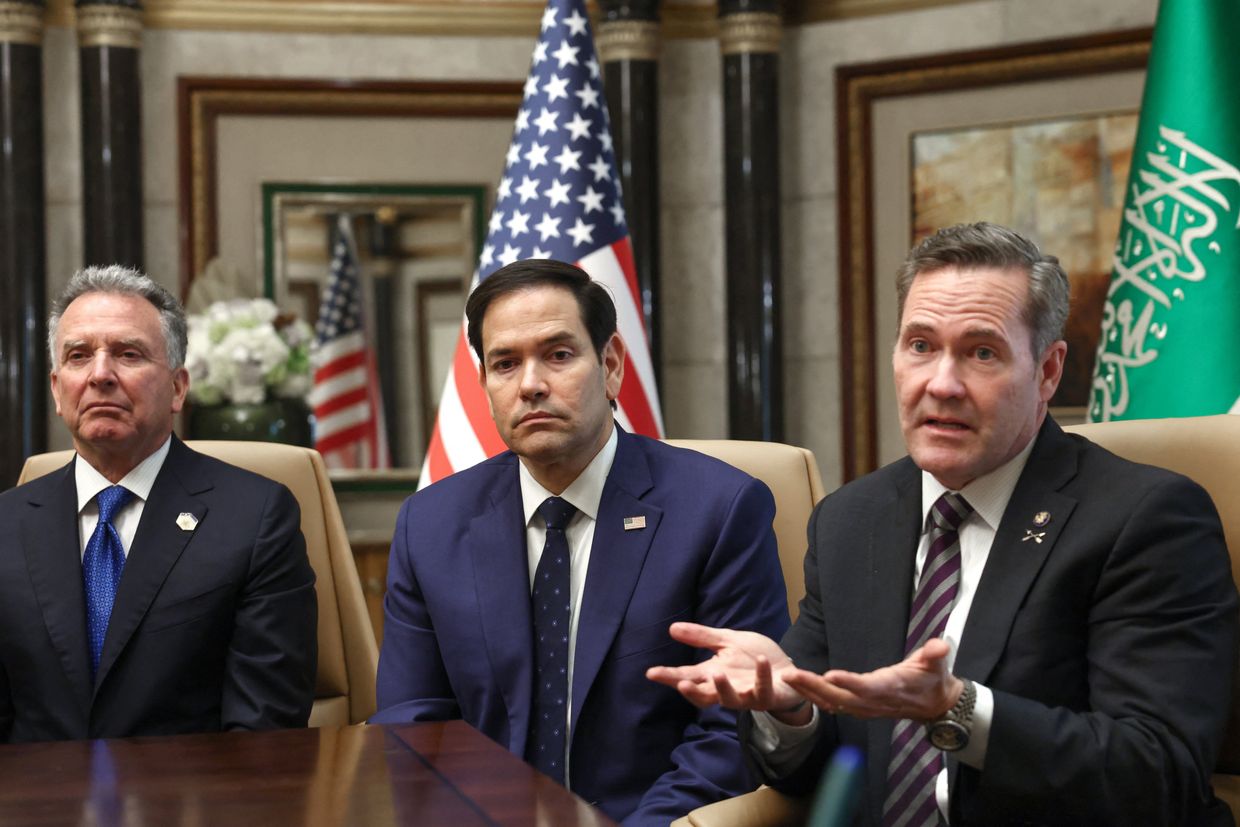
Of course, the United States had troops deployed in Afghanistan for two decades fighting a Taliban insurgency alongside Afghan Army troops, while Ukraine is fighting a land invasion by a sovereign nation without any U.S. boots on the ground. The deal with the Taliban also centered on ending U.S. involvement, not the entire conflict.
However, the U.S. agreement signed with the Taliban in Doha was the only other peace deal Trump negotiated and is instructive in what his isolationist rhetoric looks like in practice. Many experts see clear parallels with the way peace talks are unfolding today.
The lesson for Ukrainians, warns Martin, is clear: “Don’t rely on America. Find other allies.”
‘This is the same playbook’
Trump had railed against the U.S. involvement in Afghanistan on social media and called for a withdrawal as far back as 2011. By the time Trump was inaugurated in 2017, almost 2,400 Americans had died serving in Afghanistan since the initial invasion in 2001.
Trump began his efforts to directly negotiate with the Taliban in 2018 and appointed Zalmay Khalilzad as his special advisor tasked with facilitating talks. Meeting in Qatar, Khalilzad and Taliban representatives opened up peace talks, though they excluded the Afghan government at the Taliban’s demand.
“The Afghan government was completely excluded. They were cut out,” said Tim Willasey-Wilsey, a visiting professor at War Studies at King's College and former British diplomat. “This is the same playbook (in Ukraine). Zelensky is out and Europe is out.”
John Bolton, Trump’s national security advisor at the time of the Doha deal, was also frozen out of the Afghanistan talks once Trump realized Bolton didn’t support his plans for a quick withdrawal at the expense of stability.
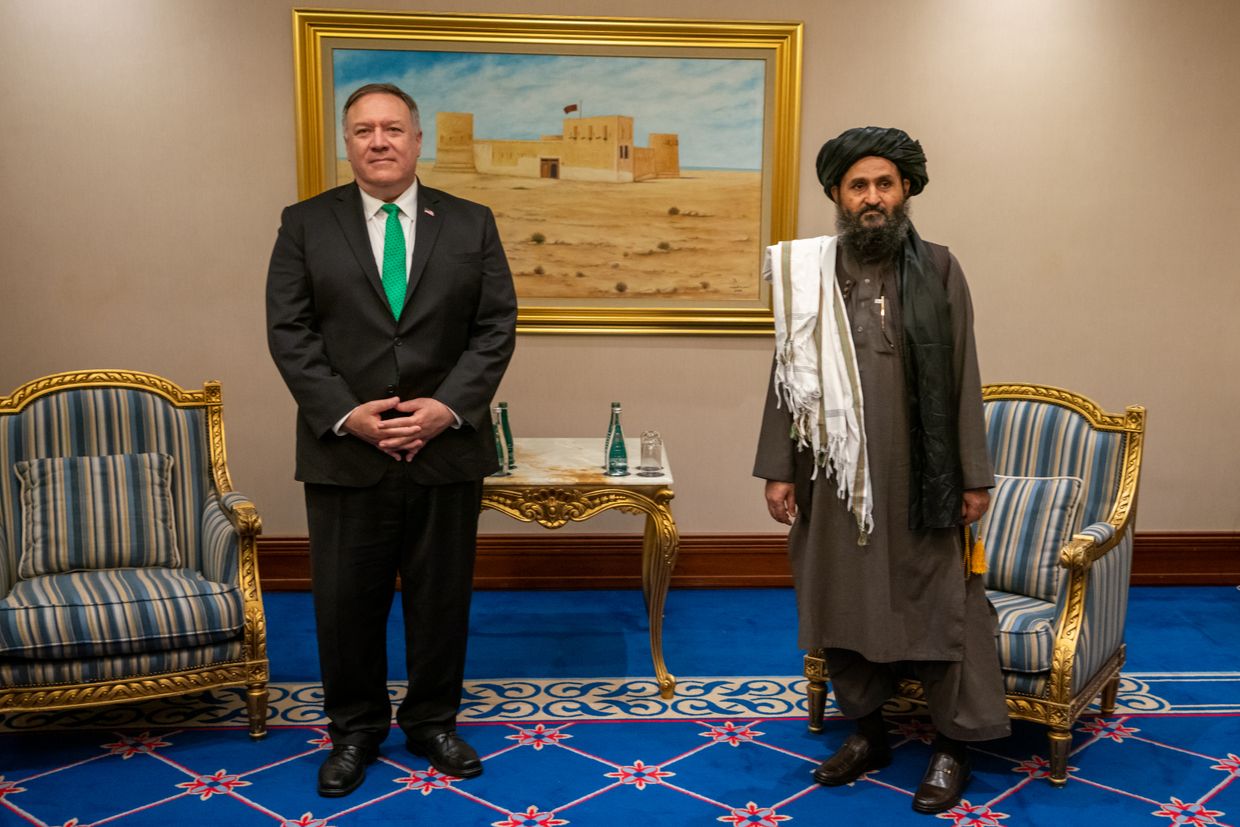
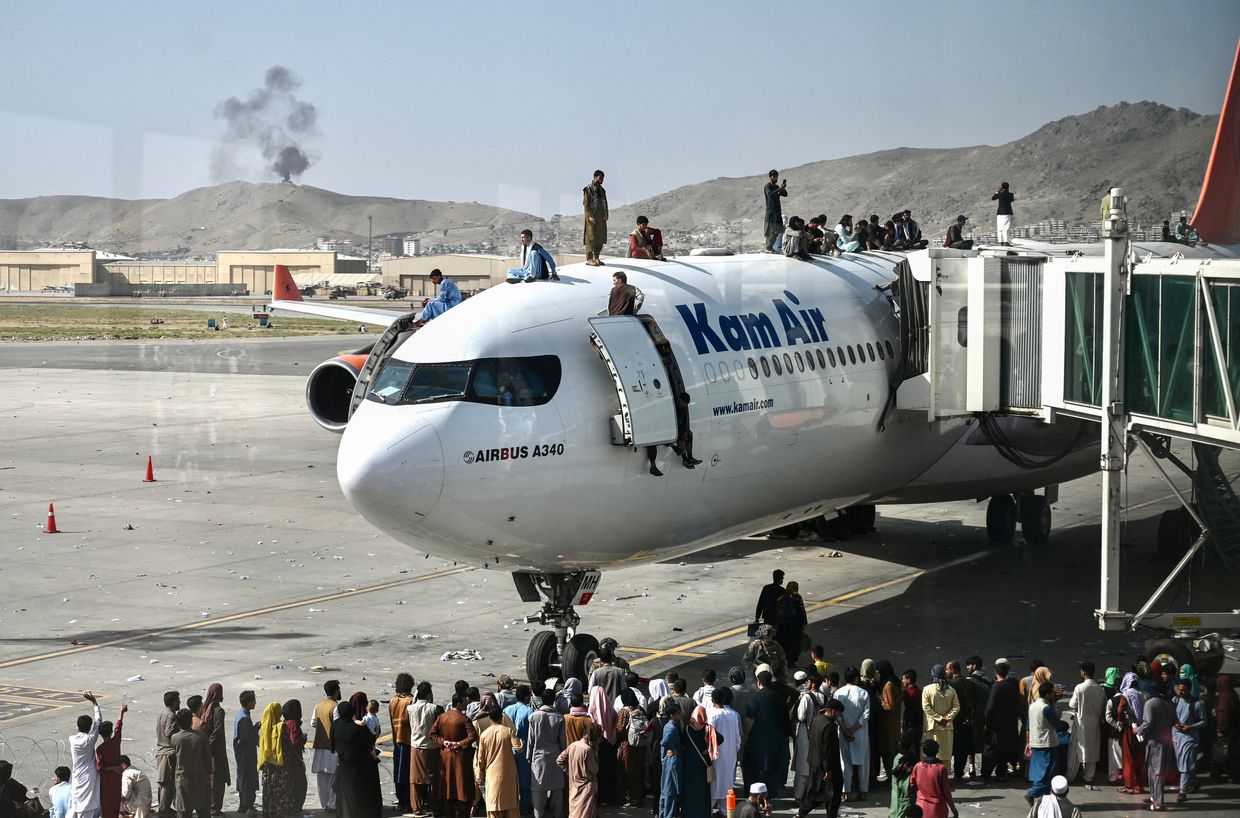
This precedent bodes poorly for those hoping that U.S. officials who oppose Russia, like State Secretary Marco Rubio, might steer Trump away from siding with Moscow, Willasey-Wilsey added.
Already, Keith Kellogg, Trump’s current special envoy for Russia and Ukraine, was absent from recent U.S.-Russia talks in Saudi Arabia. There has been no indication from the Trump Administration that he will attend future rounds, and some experts argue he is actively being sidelined due to his relatively pro-Ukraine stance.
‘We’ve got such short memories’
In February 2020, during Trump’s previous presidency, the Taliban signed a deal with the United States in Doha, Qatar. The U.S. promised to withdraw its troops within 14 months and signaled it would lift economic sanctions, while the Taliban agreed to not attack U.S. troops, eventually open talks with the Afghan government, and to prevent terrorist groups from operating in Taliban-controlled territory.
The deal signed in Doha had secret agreements that were not publicized, leaving Afghan President Ashraf Ghani confused about exactly what the U.S. president had promised his foe.
“All Trump wanted was to say, ‘I got out of Afghanistan.’ The details didn’t really matter.”
Meanwhile, the Taliban violated its pledges almost immediately. It escalated violent attacks and maintained ties with terrorist groups.
Rather than holding the Taliban accountable, the Trump administration continued with its pledge to withdraw troops.
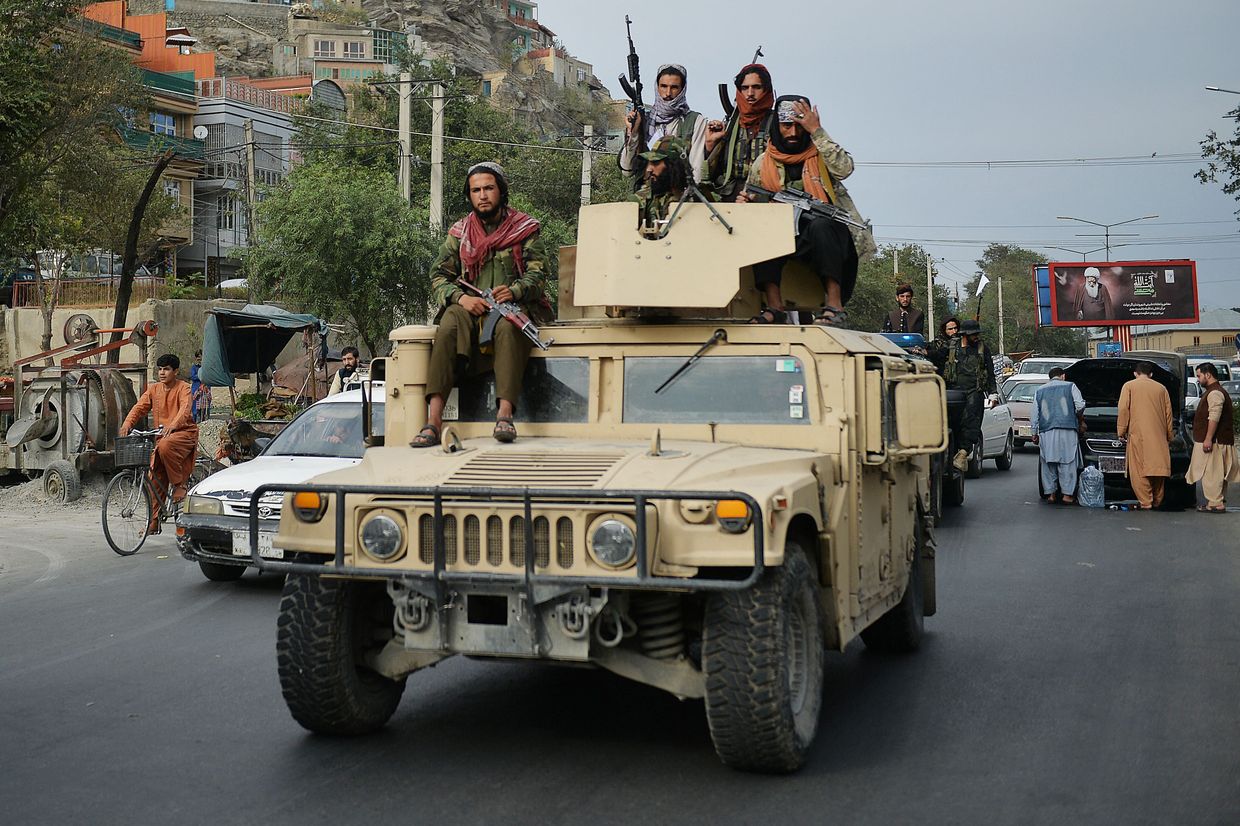
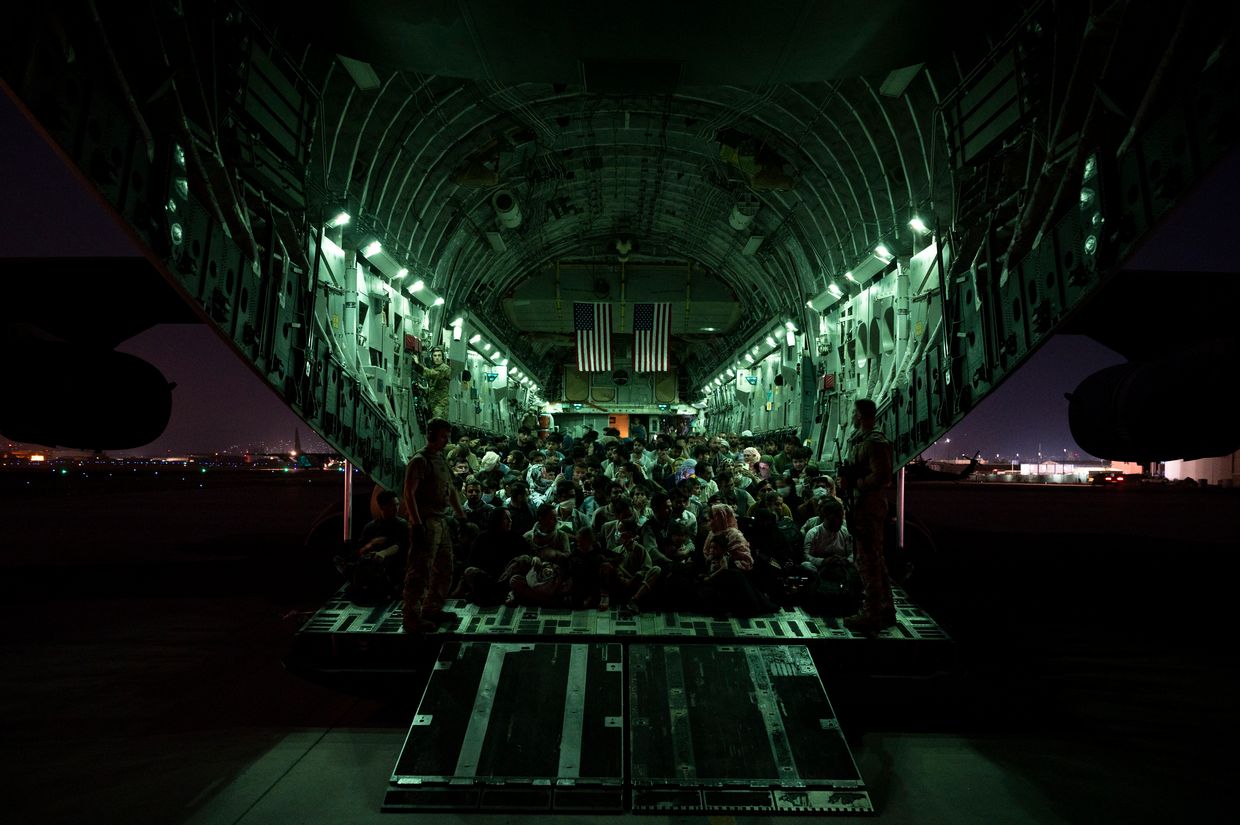
“It’s very easy to say (the two wars) are not similar. Of course, it’s very easy to draw distinctions. But in terms of the general behavior of Trump towards negotiations, I think it’s very instructive,” said Willasey-Wilsey.
“All Trump wanted was to say, ‘I got out of Afghanistan.’ The details didn’t really matter,” said Willasey-Wilsey, calling his negotiating tactics a “complete disaster.”
“We’ve got such short memories. It was only four years ago. But we should have remembered how this man operates,” he added. “It's a bit of a condemnation of all of us that we weren't really ready.”
‘If Putin reneges, what can you do?’
Trump’s successor, Joe Biden, inherited the Doha deal and decided to see through the U.S. commitment.
Within weeks of Biden’s announcement in April 2021 that the war in Afghanistan would end and a full withdrawal was on track, violence surged and the Taliban began to rapidly conquer huge swaths of land — culminating in a deadly and chaotic evacuation of more than a hundred thousand people from the main airport in Kabul.
The poorly planned withdrawal has remained a stain on Joe Biden’s legacy, but many in the U.S. and abroad have forgotten the role of Trump’s negotiation priorities in laying the groundwork for one of Washington’s worst foreign policy failures in recent history.
Many from Trump’s administration distanced themselves from the deal in the aftermath, and critics have seen it as an effective surrender.
Should the Ukraine deal similarly fall apart, Trump may again try to blame anyone but himself, said Willasey-Wilsey: “If the thing goes horribly wrong in two or three years' time, because Putin kicks off again, and if the guarantees are hopeless, which they will be, he'll blame Biden, he'll blame the Europeans.”
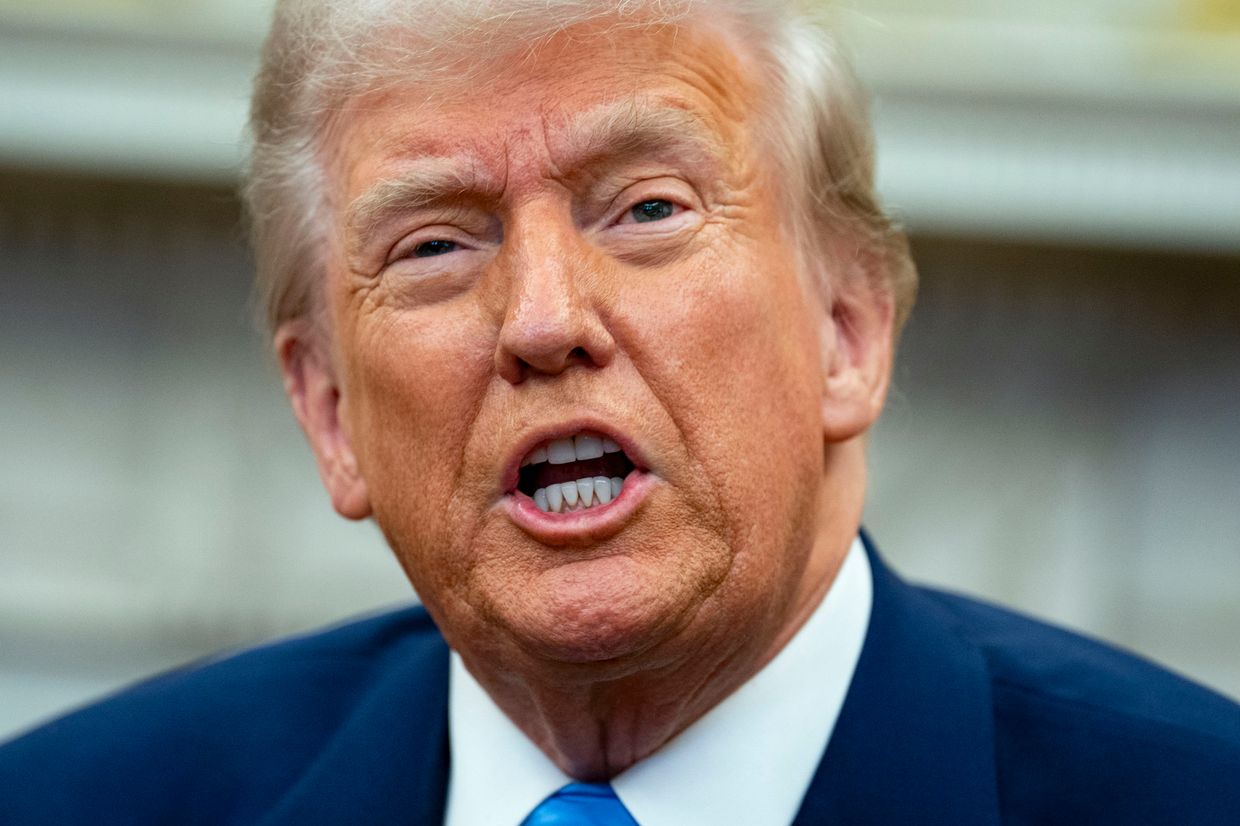
Trump blamed Biden and former Vice President Kamala Harris for the “humiliation in Afghanistan” as recently as last year. Yet a review led by the U.S. National Security Council found that Biden’s actions were constrained by the Doha deal, and placed the blame on Trump.
“The (Afghanistan) deal itself was highly flawed,” said Philippe Lefevre, associate director of the University of Surrey’s Centre for Britain and Europe. “It gave everything to the Taliban with no real response back. The Taliban immediately reneged on the deal. There was no ability or mechanism for the U.S. or NATO forces in Afghanistan to hold them accountable.”
“That is the same fear here” in Ukraine, added Lefevre, “that you will be giving (Russian President Vladimir) Putin everything he wants. He can promise whatever he wants. But if he reneges — and my belief is he wants to renege — what can you do?”
Both the Taliban and Putin have a track record of human rights violations, noted Lefevre, and have undermined their credibility during negotiations. Russia’s 2022 full-scale invasion, for example, was a blatant violation of the Minsk Agreements signed in 2014 and 2015 after Russian military offensives in Ukraine's Donbas.
In his negotiations, Zelensky has tried to protect against potential violations of a future agreement by maintaining that any ceasefire must come with security assurances. Zelensky recently provided U.S. officials with a list of more than two dozen times that he says Russia violated ceasefires negotiated between 2014 and 2022.
Even Khalilzad, who negotiated the deal in Doha that led to Afghanistan’s collapse, has chimed in on the issue. In a post on X on Feb. 18, Khalilzad wrote that “credible security guarantees to deter future Russian invasions” and “a peace-keeping force” are necessary for a permanent end to the war in Ukraine, perhaps drawing on his experience with Afghanistan.
‘Europeans must be far more prepared to go it alone’
Zelensky has maintained that Ukraine will not accept any deal negotiated without its participation. And, since Trump is seeking an end to fighting involving Zelensky’s forces — rather than just a withdrawal of U.S. troops — Zelensky’s involvement can’t be ignored as easily as in Afghanistan.
Either way, Trump officials have made it clear that they want a deal quickly and have suggested that one is already “close.” A press secretary for the administration said it could arrive as soon as this week, while Moscow said it is open to a ceasefire only if the agreement “suits” Russia.
One of the biggest differences between Afghanistan and Ukraine may also be one of the biggest hopes for Kyiv to avoid repeating the mistakes in Kabul, according to Lefevre: the role of other European countries.
“Europe has a much larger ability to manage this withdrawal, has a much larger interest in successfully bolstering Ukraine during this potential withdrawal, and could and should help Ukraine push back against some of the worst aspects of the negotiations,” said Lefevre.
Among the most egregious aspects, he said, is the discussion to transfer Ukrainian mineral rights and natural resources to the U.S., which is “clearly one-sided.”
The U.S. has reportedly pressured Ukraine to give up $500 billion of its natural resources as repayment for American aid to Ukraine, which was given without the expectation of repayment.
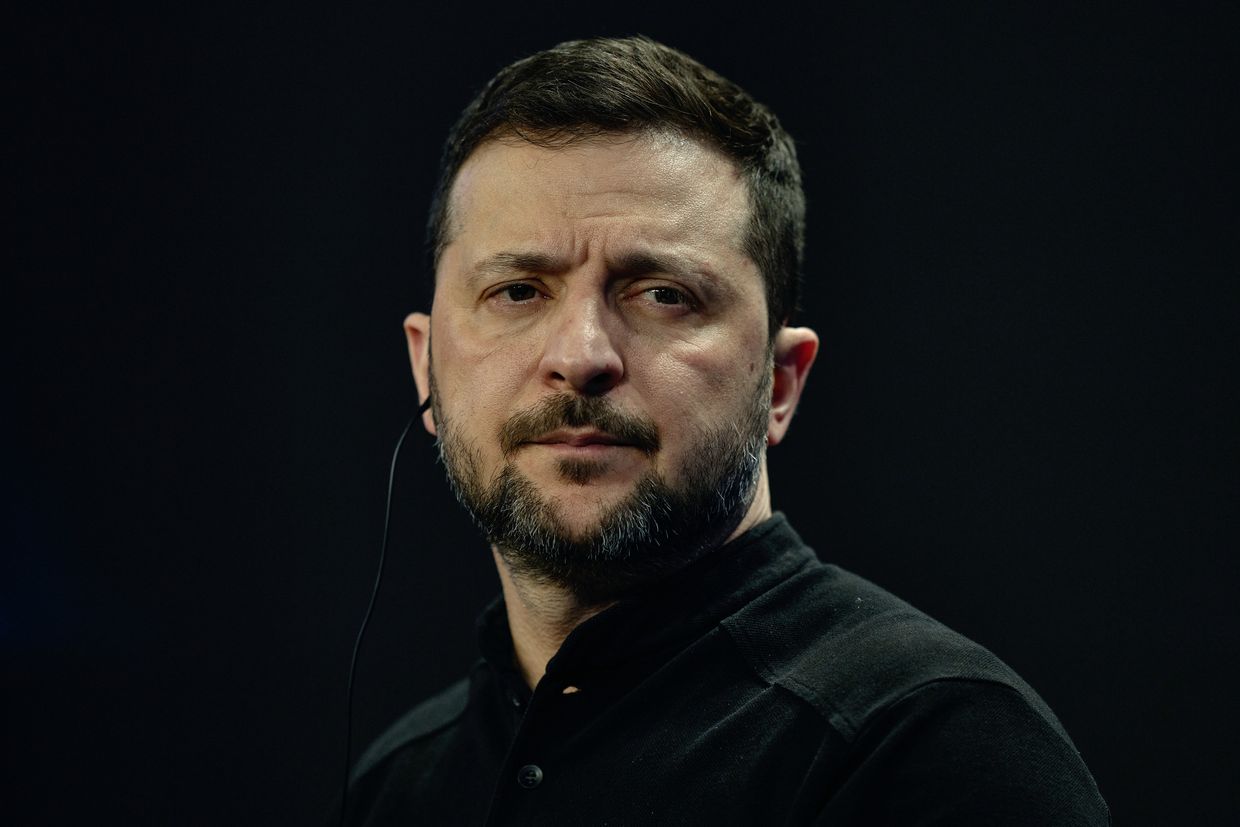
Zelensky has thus far refused, noting that the proposed agreement fails to provide any security guarantees and vastly outweighs the $100 billion provided by the U.S.
Kellogg has said that Europe will not be directly included in peace negotiations but its interests will be taken into account.
So far, Europe has vocally called for Ukraine’s and its own inclusion in peace talks, is continuing to provide aid, and is reportedly forming a plan to send peacekeeping troops to Ukraine.
“It’s not an inevitability that there is a withdrawal like Afghanistan, but it is up to Europeans to make sure that’s the case,” said Lefevre. “The Europeans must be far more prepared to go it alone. We were not prepared to go it alone in Kabul.”
How Ukraine has pushed back and held the line against Russia for 3 years
Elon Musk on Feb. 21 questioned why Ukraine was still actively defending itself amid the ongoing Russian full-scale invasion, suggesting the country’s fight against the Kremlin’s imperialist ambitions was, in fact, a giant money-making scam. “What are they dying for? What exactly are they dying for…

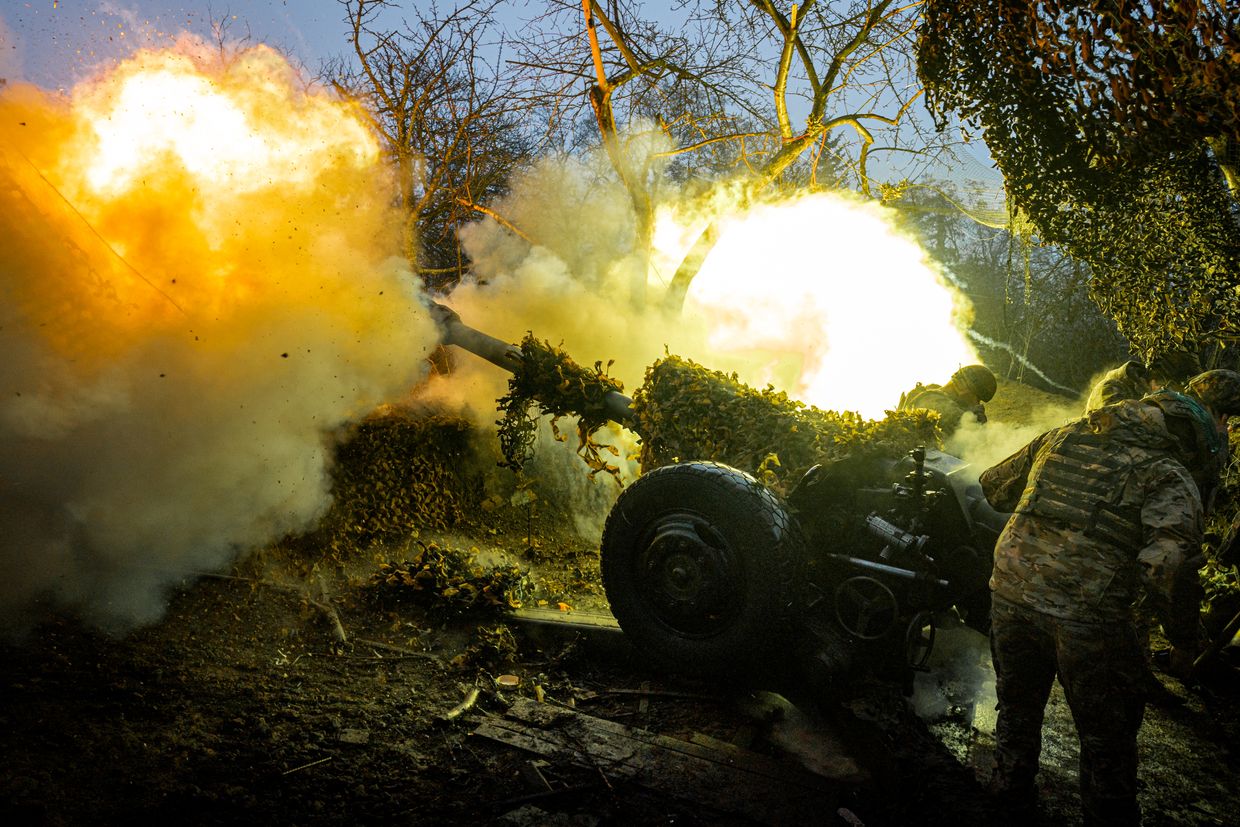
.png)
 German (DE)
German (DE)  English (US)
English (US)  Spanish (ES)
Spanish (ES)  French (FR)
French (FR)  Hindi (IN)
Hindi (IN)  Italian (IT)
Italian (IT)  Russian (RU)
Russian (RU)  4 hours ago
3
4 hours ago
3
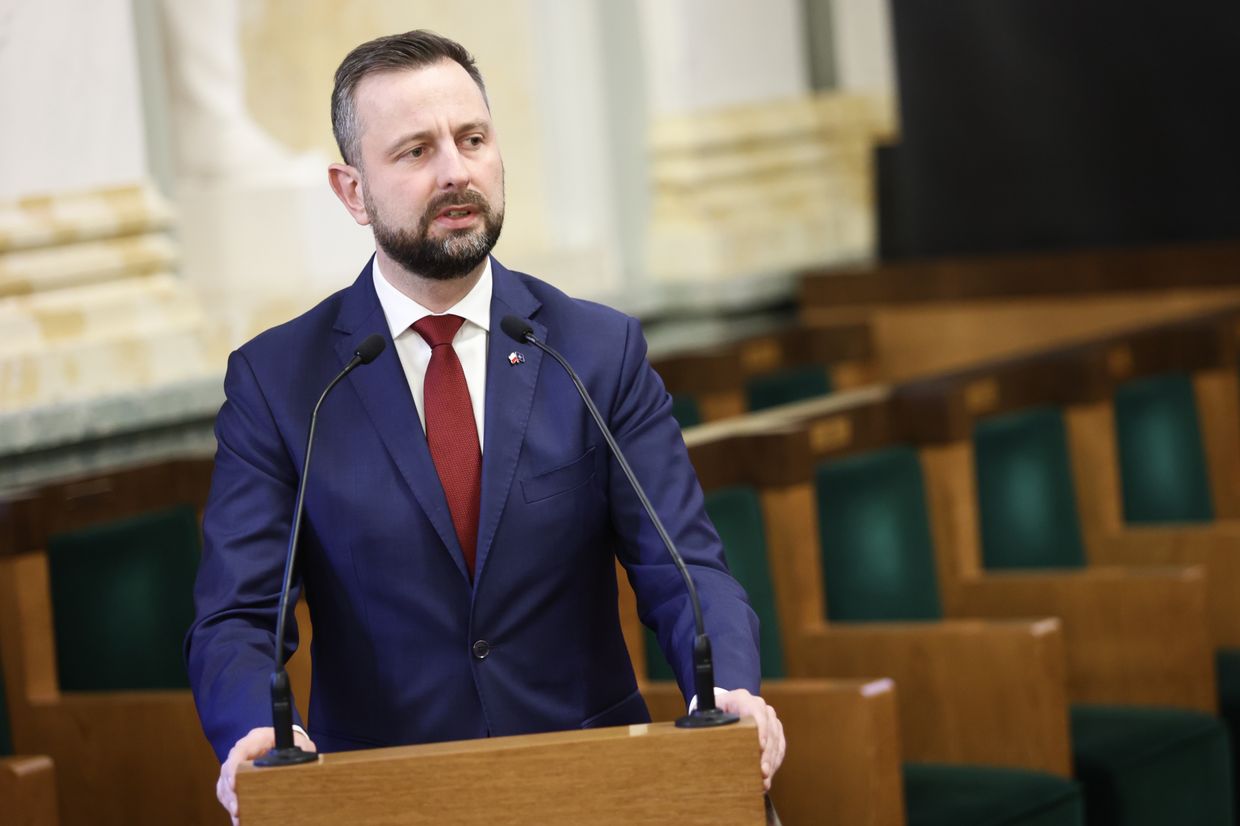

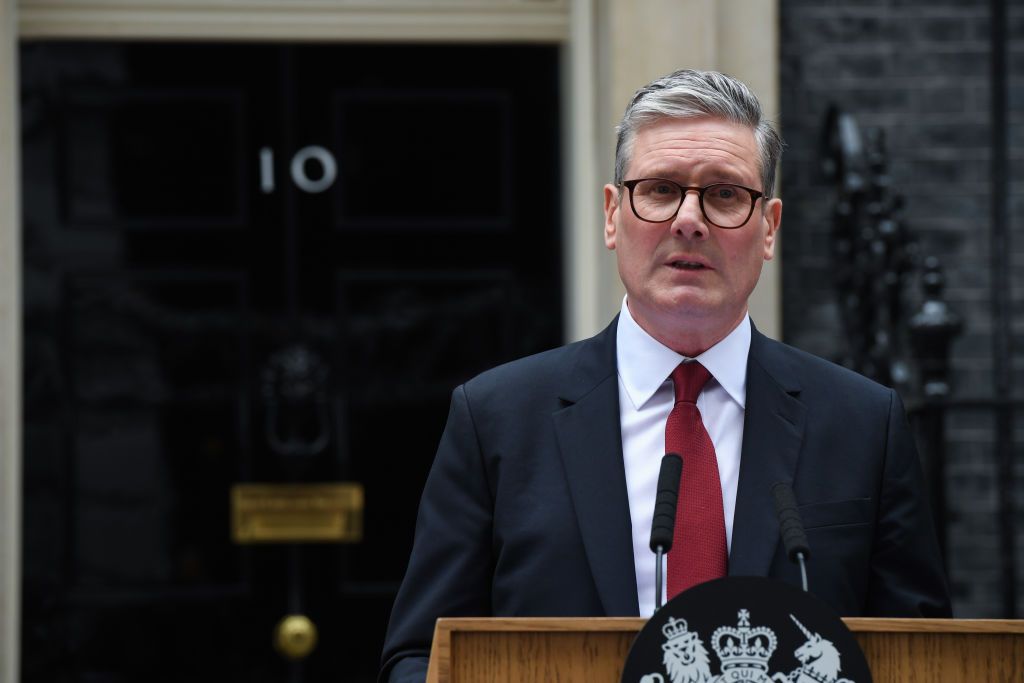




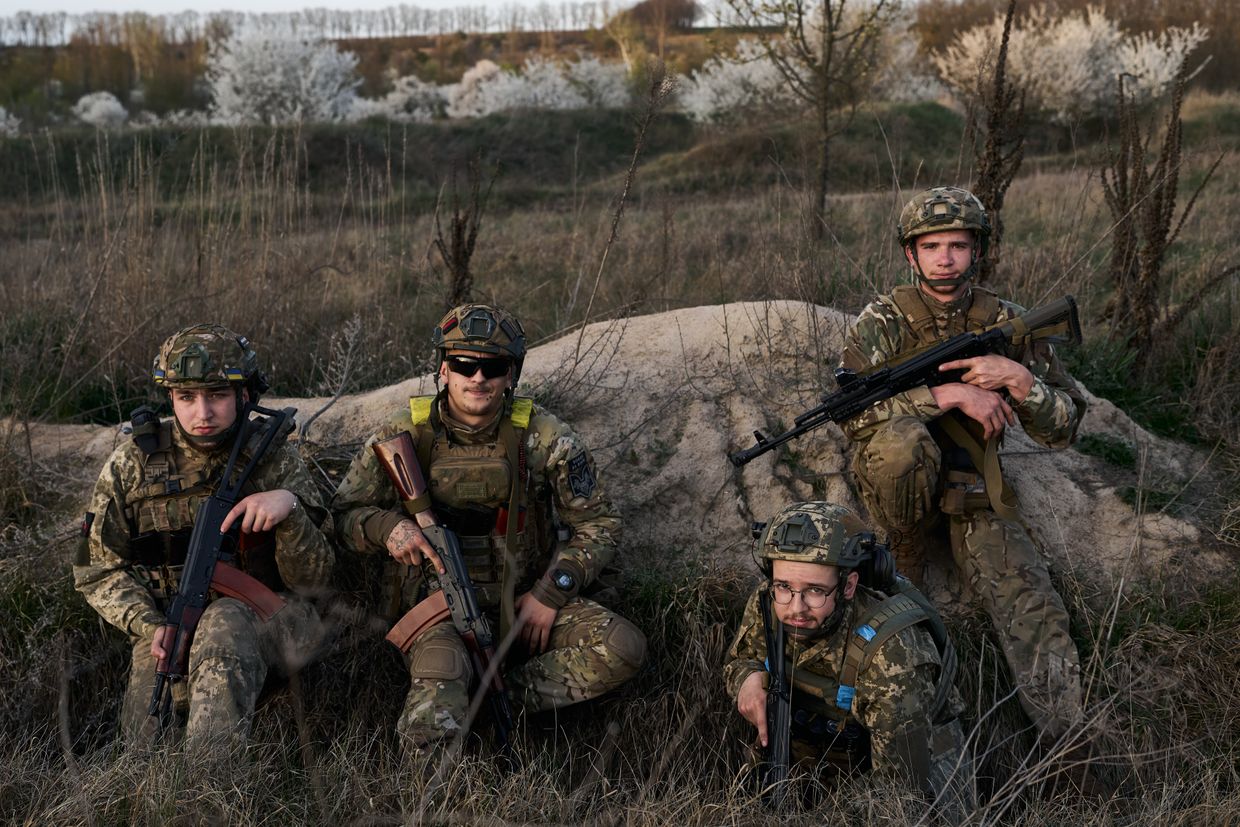

Comments